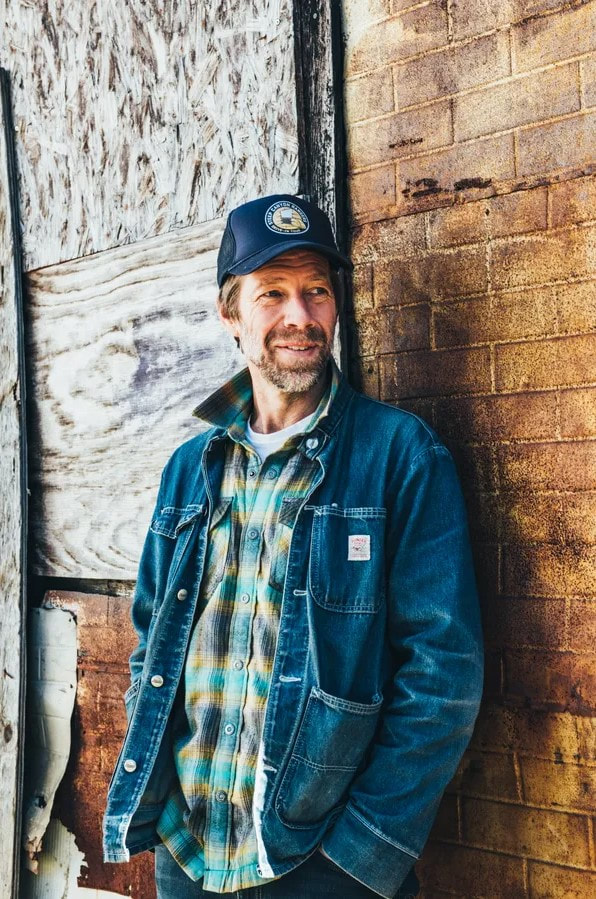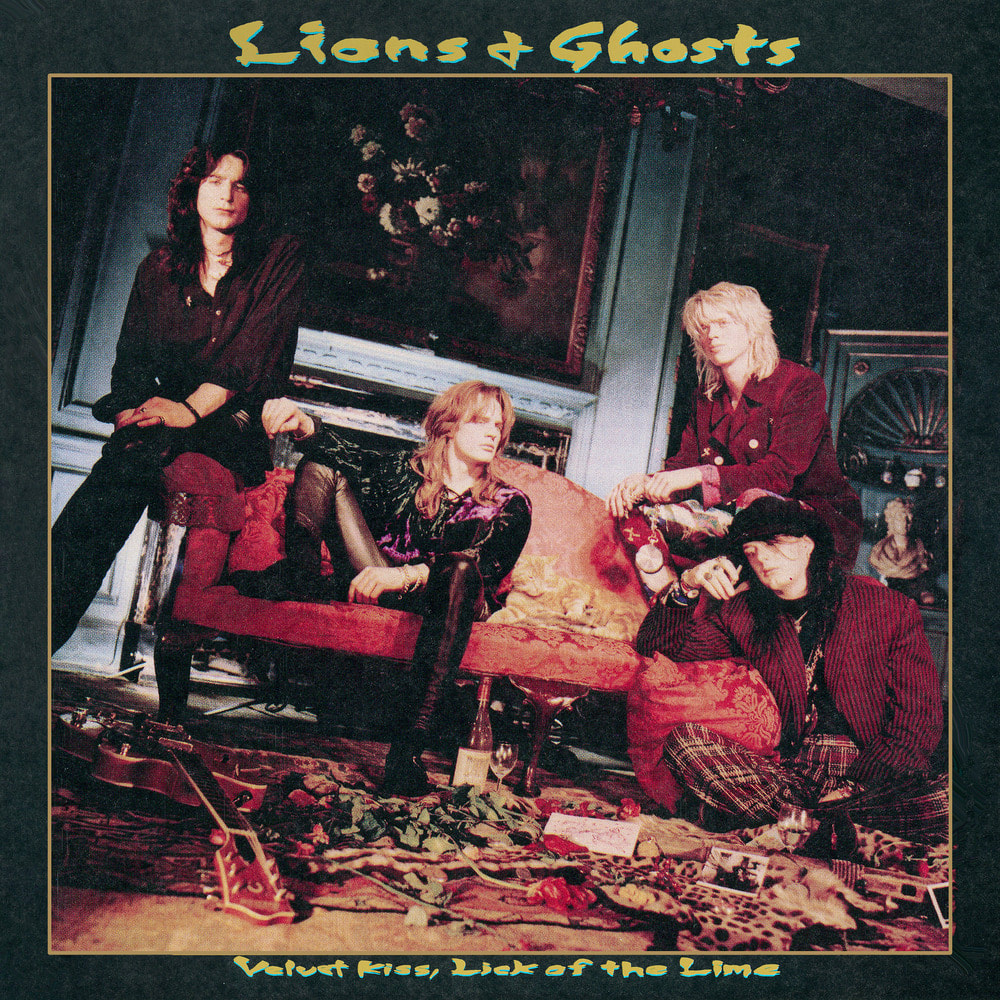|
Cris Cohen: As we've talked about in the past, there is that special connection between the bass player and the drummer. What is the key to meshing with a new drummer?
John Pierce of Toto: That's a very good question. I've done it so many times because all those years in the studio, every day is a different drummer. I mean at this level, when guys are as good as Sput is for instance, meshing happens pretty fast. This guy's an extremely skilled musician. The key is listening, listening to the drummer. What does he feel like? My job is really to do what it takes to get on his clock. And with Sput it was a piece of cake. He’s really an amazing drummer. In this case with these guys that I'm surrounded by, I'm certainly in good hands. These guys make everyone else sound better. --- Full interview Cris Cohen: In terms of songwriting, you had an interesting line where you said, “One of my favorite things about songwriting is that you have to keep your eyes open and take inspiration when it hits you.” What have been some of the awkward moments when inspiration hit, in terms of songwriting, and how did you deal with it?
Graham Sharp of Steep Canyon Rangers: You have to be willing to make a fool out of yourself. Just yesterday I was like… we’re visiting this community out here in Colorado. I had an idea for a way of singing a song in my head, so I had to go out and walk around the neighborhood and sing it out loud. You get funny looks and things like that. I think, in general -- and my wife is well-accustomed to it now -- it’s just kind of a glazing over, when something is in your head. She’s like, “You’re thinking about a song.” And I’m like, “Yeah, I have to go write this down or record this on my phone or something.” --- Full interview Cris Cohen: (Recording songs now that were written in 1985 for the Talas album "1985".) Was there any kind of internal struggle as you were laying down your parts, thinking, "Well, if I was doing this nowadays, I would probably play this, but back then I would probably play that"? Was it difficult to bounce back and forth mentally with that idea?
Billy Sheehan: I don't believe so. There's not a lot of thought that goes into it, as funny as that sounds. A lot of journalists often question that, like what the plan was, or "How did you figure this out?" But it's just kind of “let nature take its course.” I rarely, if ever, think things through or plan ahead for me, personally, as a musician. And most of the musicians I work with… We're there. Here's the song. Let's do this. There's not a lot of pre-planning. And like I said, we had played them live recently. So that (is something) I'm really glad about, because we had a real chance to get our sea legs back, get our footing back on those particular songs. And they were a blast to play back in the day. There's some chaotic, hilarious stuff in there, so we did enjoy that. Yeah, I'm not a thinker. As a matter of fact, as far as playing live, there's a famous saying that I've spread around. I forgot who originated it. It was not me. But as far as musicians – "If you think, you stink." So, if you're thinking while you're playing… It's like with speaking. If you're stopping before every sentence and trying to plan out what you're going to say next, it's not from the heart. I'm sure you've spoken to people that are thinking about what they're saying prior. While you're talking, they're not listening. They're thinking about what they're going to say next. It's just not a real heart to heart. Or when somebody's reading off a teleprompter or reading from a sheet of paper… if you'd just do it, just speak directly. And if you know what you're talking about well enough, it'll come out great and people will understand it. And music being a language I think is a parallel there. Cris Cohen: That is an interesting parallel. Because that is a pet peeve of mine. Luckily, I haven't had this too much, but there have been some occasions, where I've been interviewing someone and the person obviously has a rote answer that they give to things. And so they're not really listening to what the question is. They're just like firing in. Billy Sheehan: I'm glad you've experienced that, so you know what I'm talking about. Cris Cohen: Yeah. I've never looked at it that way, but that is a great comparison. --- Full interview Cris Cohen: Having seen you guys -- and specifically you with the band a couple of times -- I remember first seeing you and thinking back on the movie “The Greatest Showman,” with Hugh Jackman. And I’m like, “Now I’m thinking this is based on Lawrence Gowan's life.”
Lawrence Gowan of Styx: It's a little bit on my outfit actually. Cris Cohen: Yes, exactly. But it's such a theatrical sense of fun. How much of that did you cultivate and how much of that is just your DNA when you step on the stage? Lawrence Gowan: That's a good way of phrasing that question. I think it might just be a bit more on the DNA side, because naturally, as we all do, there's a chemical reaction or imbalance, if you want to call it that, that happens when you get in front of an audience. There's a phenomenal exchange that happens if you're open to it. If you're too nervous or self-aware or self-conscious, that might never penetrate through to your persona on stage. With me, it's almost instantaneous. I think we are a band of extroverts to begin with. So that helps a great deal. And we're ready to kind of embrace that moment on stage. So, I think it may be more genetic than anything that's kind of… what was the other way you described it? Cris Cohen: Cultivated. Lawrence Gowan: Cultivated, yes. I don't think it is. Cultivated means more like how the show ends. We cultivate the show in that we reshape it over time within a couple of years, even though we may be playing for the most part 75% or 80% of the same songs. There's a new atmosphere and a new presentation that is naturally kind of cultivated as the show progresses, as time progresses, and as our relationship with the audience continues on. Cris Cohen: Yes. And obviously, if you look back at your solo performances, that element was always there to your performing. Lawrence Gowan: Yes. I mean, people in the United States weren't really aware of… well, very few were aware of my solo career in Canada. It's just the way the music industry was then. I was very relegated to that part of the planet. And I got to kind of experience playing all the biggest arenas, and the biggest venues that Styx play now. But that sense of becoming that aspect… it's funny. You want to say “become this character on stage,” but really, it's just another aspect of your own character that you're really getting a chance to kind let out at that point. I had an album in 1985, my biggest record, called “Strange Animal”. I felt like, “Well, I’ve got to personify that in some way.” On stage, it kind of gives you a very wide playground to interpret what that could mean. And I’m intrigued this week actually, Cris, because we played Toronto just a few nights ago, about three, four nights ago. It was amazing because it's the same venue that I headlined 12 times (as a solo artist) prior to playing with Styx a few times. But it was amazing. We played a song from my solo career, a Styx version of “A Criminal Mind”. And to hear the audience respond to that, and the way that Styx presented it, that to me is an amazing way where, if you use that word “cultivating,” it's amazing how we have kind of melded those two aspects of my life together into one moment. The moment that lasts for about five minutes on stage, but man is it ever… you feel a wave of gratitude, and an acceptance within the band in that moment that is really almost indescribable, as you can hear. I can't describe it. --- Full interview at https://bandstofans.substack.com/p/lawrence-gowan-of-styx-interview Cris Cohen interviews Michael Lockwood of Lions & Ghosts. You can also read the transcript of the interview. Topics: 00:00 The re-release of "Velvet Kiss, Lick of the Lime" 05:21 The new song, "Gurl I Love You" 08:08 Tinkering with the original songs 14:09 His guitar work severs as a kind of backing vocal 16:32 Creating guitar parts that mesh well with female vocalists like Aimee Mann, Susanna Hoffs, and Fiona Apple 18:14 Creating music for movies, TV, Apple versus album songs 20:02 Songwriting process 23:56 His new record label, Sparkle Plenty 31:00 Oingo Boingo 34:00 His job title "lo-fi hi-fi.ist" 37:59 Bird Streets / John Brodeur From the Lions & Ghosts bio - "In the midst of these multi-faceted genres arrived a quartet from Los Angeles by the name of Lions & Ghosts. Frontman Rick Parker, guitarist Michael Lockwood, Todd Hoffman (bass), and Micheal Murphy (drums). The band took its influences from The Beatles, glam rockers T.Rex, classic songwriters The Byrds, and more. Their love of memorable choruses and lyrics with a psychedelic twist shone through on their debut album, Velvet Kiss, Lick of The Lime. The record received a good amount of airplay for its first single, “Mary Goes Round,” and “Contradiction” from Southern California alternative rock radio institution KROQ. The band toured a good deal, supporting acts as varied as Gene Loves Jezebel, Love and Rockets, The Church, The Alarm, Dramarama, Guns N’ Roses, amongst others. Chances are, if you were at a cool show in the late 80s in L.A. at the Hollywood Palladium or the Palace, you saw Lions & Ghosts opening for someone." Michael Lockwood's website: https://www.michaellockwood.com/ Cris Cohen: You're ''the new guy” in the band at 22, 23 years. In that time, how have you been influenced by being immersed in the Styx world? And how have maybe you influenced them coming from your vast experience with your solo career?
Lawrence Gowan of Styx: Yes, that's really something that I take stock of every year, Cris. It’s like, how far has the ball moved in each direction? Because being a solo artist, you get used to having to answer every single question. Every aspect of doing your career has to kind of pass through you. And being in a band, it's a shared experience. And that, I think, was the biggest transition that I had to accomplish, and still do to some degree. Because the beauty of a band is that it really is the essence of a combined spirit. And yet, it is an entity that lives outside the sum of its parts in a way. And you have to kind of fit yourself into that. The great thing with Styx, of all the bands that I could have joined, I’m so happy it was this one that came along, because they've never really put any shackles on me as far as how to be within the band. There was never any suggestion of trying to mimic or fit into any sort of pre-existing mold. It really was up to me to kind of make my own mold. And it's getting pretty moldy. It's starting to turn out to be a nice cheese. I think my own influence, if it could be called that, my own personality began to kind of reshape the band with that inclusion right from the very first day. Mainly because, as I say, I wasn't inhibited in any way or expected to fit into any particular pattern, so to speak. I really just had to kind of play the songs, deliver them as honestly and forthrightly as I could. The lucky thing is that the songs that I sing, I was quickly able to kind of see myself in the picture of the narrative, so to speak, and relate to the lyrics. And I still do. When I get to do these classic songs, that I didn't have any part in writing, they have a great kind of universal appeal, so I can give them my own interpretation. The stage show, I would say, is where I think I see more evidence of my own direction in the band, I suppose, if we could call it that. There were so many things about their show that I really enjoyed when I first finally got to see them in 1997, when we did a couple of shows together. And I was really impressed with it. I think my own sense of fun on stage, or my own sense of how to approach an audience on stage, has had some ripple effect, as has their approach to the stage had an effect upon me, very much so. So as I say, that give and take is part of what comprises the entity of what the band is. Cris Cohen: And have those experiences with the symphony and Boyz II Men changed how you’ve viewed those particular songs, going forward?
Graham Sharp of Steep Canyon Rangers: I don’t think so. The Boyz II Men thing was… It’s all just so ridiculously gratifying, as a writer, to hear these different situations, and working to some degree, and hear Boyz II Men sing a song that you pretty much wrote riding down across town in the car. And they sing it and it’s just… It’s heavenly. The same with the symphony. You have just this little idea, and all of a sudden, it’s the horn section playing this little inkling of an idea you had some time, and all of a sudden it’s made beautiful by this unbelievable section behind you. So, those things are just so gratifying, really. |
Archives
June 2024
|






 RSS Feed
RSS Feed